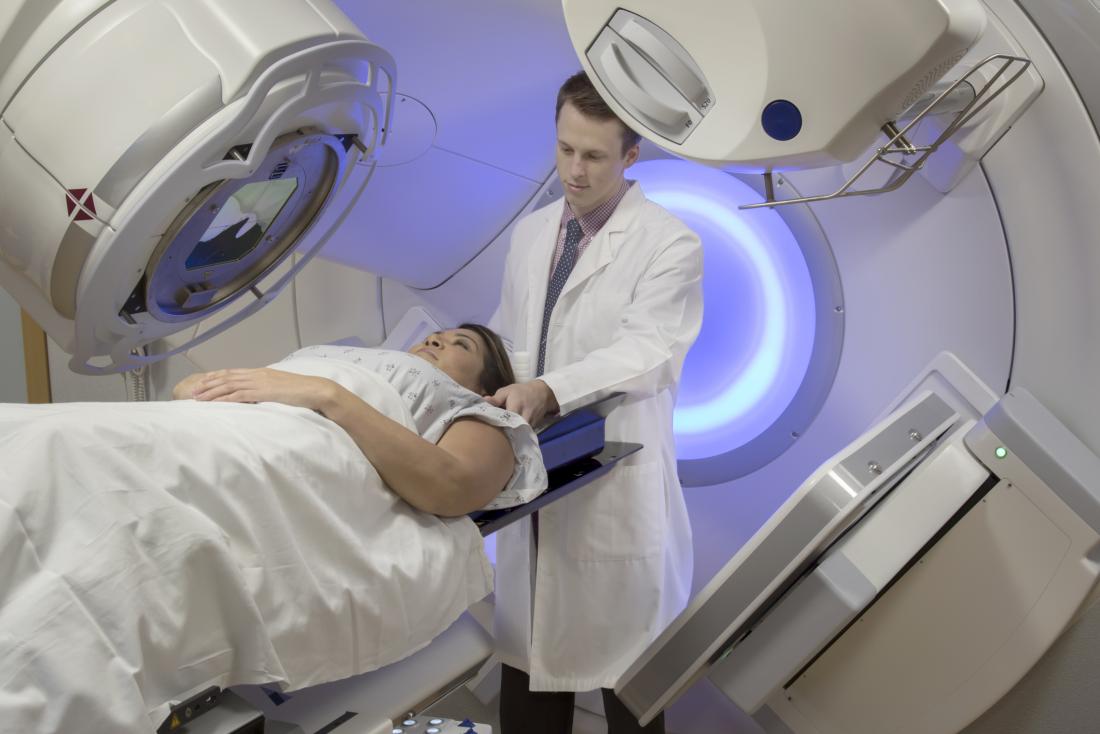Rectal cancer researchers have accomplished a significant feat, demonstrating in a large clinical trial that patients fare just as well without radiation therapy as with it.
The results, revealed Sunday at the annual meeting of the American Society of Clinical Oncology and published in the New England Journal of Medicine, could offer more than 10,000 patients in the United States each year the option to forgo a cancer treatment known for its serious side effects.
Dr. Eric Winer, president of the oncology organization but not involved in the trial, highlighted that this study represents a new direction for cancer researchers.
“Now that cancer treatments have improved, researchers are starting to ask different questions,” he said.
“Instead of asking how cancer therapy can be intensified, they are asking if there are elements of successful treatments that can be eliminated to provide patients with a better quality of life.”
This prompted researchers to reassess the standard treatment for rectal cancer, which affects 47,500 people annually in the United States, with the specific subtype studied impacting about 25,000 Americans each year.
For decades, pelvic radiation has been a common practice, but it comes with significant drawbacks. For women, it induces immediate menopause, and for both men and women, it damages sexual function.
Additionally, radiation can harm the bowel, causing chronic diarrhea, increase the risk of pelvic fractures, and lead to secondary cancers.
The study revealed that radiation treatment did not improve outcomes. After a median follow-up of five years, there was no difference in key measures—such as survival duration without cancer recurrence and survival—between those who received radiation and those who did not.
Furthermore, after 18 months, there was no difference in quality of life between the two groups.
Dr. Kimmie Ng, co-director of the colon and rectal cancer center at the Dana-Farber Cancer Institute, who was not an author of the study, noted that the findings could significantly impact patients’ lives.
“Now, especially, with patients skewing younger and younger, do they actually need radiation?” she asked.
“Can we choose which patients can get away without this extremely toxic treatment that can lead to lifelong consequences, such as infertility and sexual dysfunction?”
Dr. John Plastaras, a radiation oncologist at the Penn Medicine Abramson Cancer Center, acknowledged the results as “certainly interesting,” but expressed a desire for longer follow-up before concluding that the two treatment options are equivalent.
The trial focused on patients whose tumors had spread to lymph nodes or tissues around the bowel but not to other organs.
This subset, classified as having locally advanced cancer, comprises about half of the 800,000 newly diagnosed rectal cancer patients worldwide.
In the study, 1,194 patients were randomly assigned to one of two groups. One group received the standard treatment, starting with radiation, followed by surgery, and then chemotherapy at their doctor’s discretion after surgery recovery.
The other group received the experimental treatment, starting with chemotherapy, followed by surgery, and potentially another round of chemotherapy at their doctor’s discretion.
Radiation was only administered if the initial chemotherapy failed to shrink tumors, which occurred in just 9% of cases.
Not all patients were eligible for the trial. Those whose tumors were deemed too risky for only chemotherapy and surgery were excluded and received the standard radiation treatment.

“We said, ‘Oh, no — that’s too risky,’” explained Dr. Deborah Schrag of Memorial Sloan Kettering Cancer Center, who led the trial.
Dr. Schrag and Dr. Ethan Basch of the University of North Carolina at Chapel Hill took the extra step of asking patients to report on their quality of life, including aspects such as pain, fatigue, diarrhea, neuropathy, and sexual function.
“When 80 percent of patients are alive after five years, we want to say they are living well,” Dr. Schrag emphasized.
While symptoms varied between the groups at different times, after two years, there was a trend toward a better quality of life in the chemotherapy group. Notably, male and female sexual function fared better in this group.
Early on, those receiving chemotherapy without radiation experienced more nausea, vomiting, and fatigue. A year later, however, the radiation group suffered more from fatigue, impaired sexual function, and neuropathy.
“Now patients trying to decide if they want radiation or chemotherapy can see how those in the trial fared and decide which symptoms matter most to them,” Dr. Basch stated.
Such clinical trials, known as de-escalation studies, are challenging because they remove a standard treatment to assess its necessity.
No company funds these trials, and even the National Institutes of Health (NIH) was initially hesitant to support the study, doubting enough doctors would enroll patients and enough patients would agree to participate, fearing health risks.
Though the NIH eventually sponsored the study, their concerns were justified. It took eight years to enroll 1,194 patients at 200 medical centers. “It was brutally difficult,” remarked Dr. Alan Venook of the University of California, San Francisco, who helped design the study.
Dr. Schrag acknowledged that it required “unbelievably courageous patients” and confident doctors to deem the study ethical. “You live with this on your conscience,” she said.
Radiation has historically been used to prevent rectal cancer recurrence. Chemotherapy and surgery often controlled the disease, but recurrences in the pelvis could lead to severe complications, such as tumors eroding the bladder, uterus, or vagina.
As time passed, some researchers questioned the necessity of radiation due to improvements in chemotherapy, surgery, and medical imaging, along with earlier diagnoses.
Dr. Schrag and colleagues began with a pilot study involving “30 courageous patients,” which yielded encouraging results and justified a larger study.
Dr. Venook praised the study as a triumph in multiple ways, noting the collaboration required among surgeons, oncologists, and radiation oncologists, as well as patient participation.
One such patient, Awilda Peña, 43, from Boston, discovered her rectal cancer at age 38. “I could not believe it,” she said.
Motivated by hope to avoid radiation, she participated in the trial, feeling reassured by the researchers’ close monitoring for five years.
Now cancer-free, Ms. Peña reflected, “You are not just doing this for yourself. You are helping the best scientists and researchers. You take a risk but you are contributing something.”
